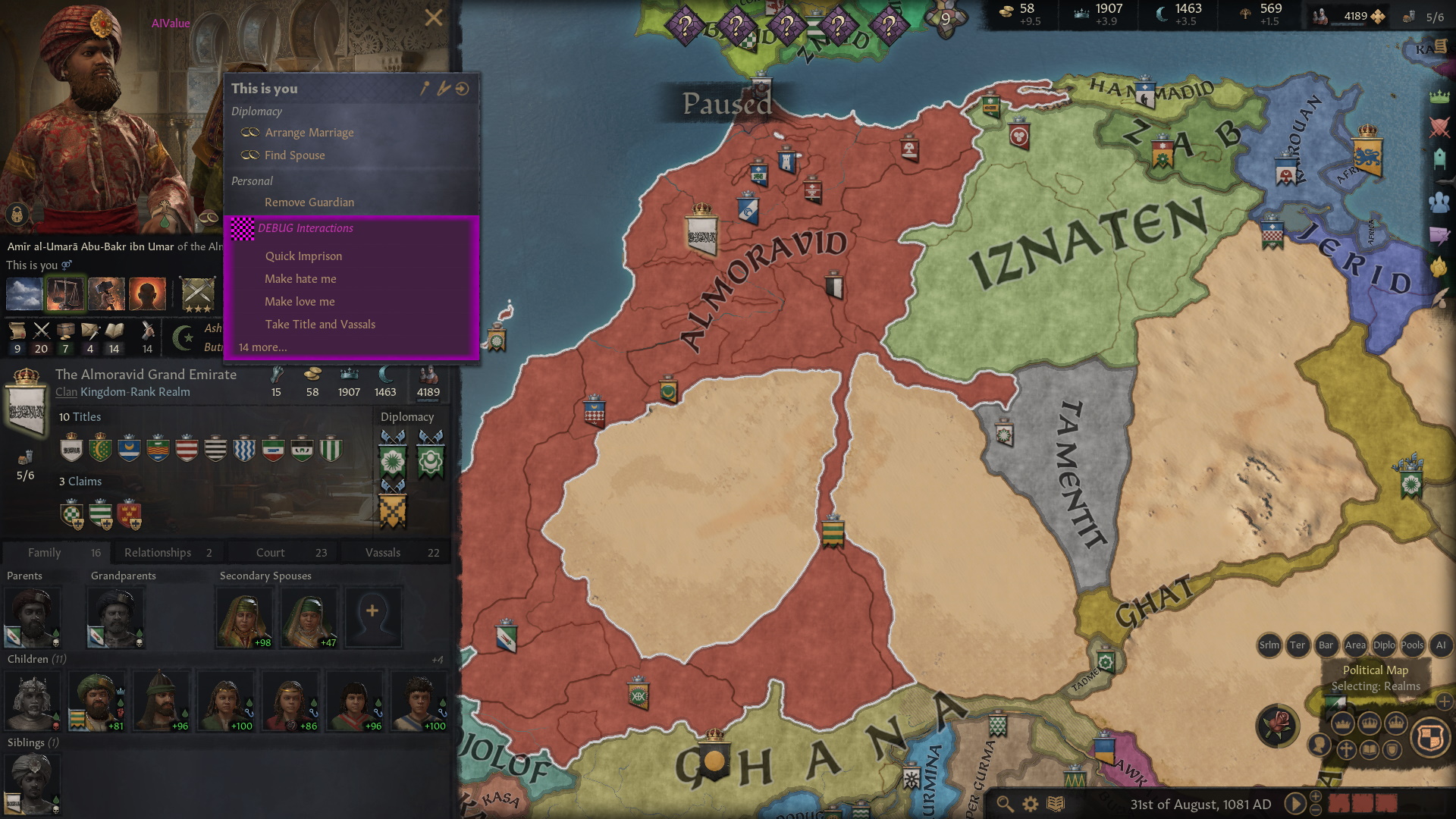
 All rulers may take concubines, consorts, or multiple spouses, if their faith allows it. No preference is given to either male or female children in succession. Men take precedence over women in succession. Male rulers may take concubines or multiple spouses, if their faith allows it. Women are disqualified from inheriting titles and claims. Here’s how these laws appear in Crusader Kings 3:
All rulers may take concubines, consorts, or multiple spouses, if their faith allows it. No preference is given to either male or female children in succession. Men take precedence over women in succession. Male rulers may take concubines or multiple spouses, if their faith allows it. Women are disqualified from inheriting titles and claims. Here’s how these laws appear in Crusader Kings 3: 
In any realm you rule, you’ll have both succession laws and gender laws that apply to inheritance. In some cultures, women were not permitted to hold titles and were barred from inheriting even pieces of their late parents’ kingdoms.
Another variation on partition, this one favouring the eldest eligible child with at least half of the late ruler’s titles, including the primary title, realm capital, and any direct de jure titles associated with it.įeudal societies often had firmly held beliefs on who was fit to rule, and part of that is reflected in Crusader Kings 3’s gender laws. Similar to confederate partition, but in this case, new titles aren’t created to ensure each child receives an equal rank. The player heir – that’s who you’ll continue to play as – will always receive the ruler’s primary title, the realm capital, and any associated de jure titles. Titles are divided equally among the late ruler’s children, and new titles can be created for younger heirs. Multiple-heir succession laws Confederate Partition All titles pass to the oldest eligible member of your House, and your children receive nothing unless one of them happens to be the oldest House member. Your youngest eligible child inherits all of your titles, while older children receive nothing. Your oldest eligible child inherits all of your titles, while younger children receive nothing. Single-heir succession laws Primogeniture If that’s the case, defending the status quo will be a top priority. As a vassal, you’ll generally want your liege’s titles to split up as much as possible – unless you already stand to inherit a big chunk of their titles. But as always in Crusader Kings 3, there are many ways to approach this problem and figuring out how to manage multiple heirs can be a rewarding puzzle. 
As a ruler, your goal will likely be to keep your realm from fracturing, and so you’ll likely want to try to enact a single-heir policy like primogeniture for simplicity’s sake. Who those heirs are and how big a portion they’re each entitled to is determined by some combination of local traditions, realm laws, cultural norms, and religious doctrines.Īt the top, there are realm-level succession laws, and these can either designate a single heir or multiple heirs. When your CK3 character shuffles off this mortal coil, all the titles they hold remain, and must be divided up between rightful heirs. What are Crusader Kings 3 succession laws?







 0 kommentar(er)
0 kommentar(er)
